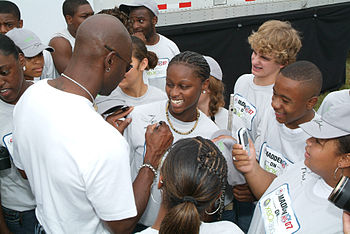
(Affiliate Link)
Quote by Geoffrey Colvin in chapter 4 of his book “Talent is Overrated: What really separates World-Class Performers from Everybody Else“:
That’s about 1,000 hours a year, or 20,000 hours over his pro career. He [Jerry Rice] played 303 career NFL games—the most ever by a wide receiver—and if we assume the offense had the ball half the time on average, that’s about 150 hours of playing time as measured by the game clock; this may be overstated, since Rice wasn’t on the field for every play. The conclusion we reach is that one of the greatest-ever football players devoted less than 1 percent of his football-related work to playing games.
Geoffrey Colvin gives the example of Jerry Rice’s well-documented training regimen as an example of how practicing and training to be one of the best in your talent field does not mean performing the publicly recognizable part of it every hour of your practice time. What this example shows is that top people will break down the component skills of what they need in and then focus on improving those component skills.
In the case of Jerry Rice this meant practicing separate skills like sprinting and weightlifting even though they weren’t visibly and directly related to holding a football. But he knew that by isolating certain skills, it would make a huge difference to his final talent. See if you can apply this to your child’s situation. Take a look at his or her current practice regimen: can you pull back on some of the outward visible performance part of his or her talent and instead use that time to develop more thoroughly a key component skill?

